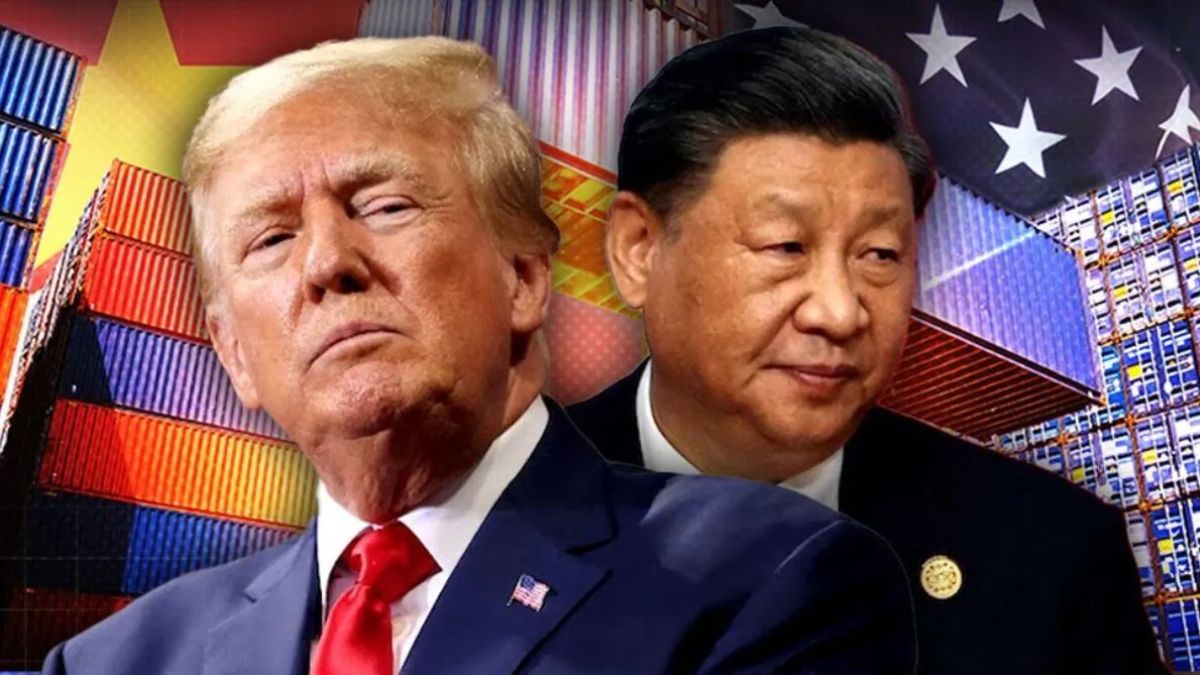Beijing has placed civilian officials on “wartime footing” and launched a global diplomatic offensive in response to U.S. President Donald Trump’s latest trade salvos, signaling a dramatic escalation in Cold War-era tensions between the world’s two largest economies.
Foreign and commerce ministry staff have reportedly been told to cancel vacations and remain on standby 24/7, while propaganda departments are circulating defiant messaging, including archival footage of Mao Zedong vowing never to yield. The move follows Trump’s steep tariff hikes—framed as a “Liberation Day” by his allies—and marks a sharp shift from China’s previous efforts to de-escalate the dispute through compromise.
Bureaucrats in the foreign affairs and commerce ministries have reportedly been told to cancel vacations and stay on-call 24/7, while propaganda officials have spearheaded efforts to frame the response with defiant messaging including videos of Mao Zedong vowing never to yield, Reuters reported, citing multiple sources familiar with the strategy.
The sharp shift in posture follows Trump’s latest tariff threats—dubbed a “Liberation Day” move by his supporters—and marks a pivot from months of Chinese efforts to seek compromise.
Beijing has now ramped up retaliatory tariffs and is reaching out to other nations targeted by US trade policy including European allies, Japan and South Korea, urging a coordinated response.
The United States has escalated its trade conflict with China dramatically, raising tariffs to 145% in response to what President Donald Trump labelled as Beijing’s “unfair trade practices.” The move came after China retaliated with its own 125% tariffs, triggering alarm among global businesses and economists.
Impact Shorts
More ShortsCompanies trading between the two countries now face severe uncertainty, with some questioning the future viability of their operations. The latest tit-for-tat measures have cast a shadow over decades of deep economic ties between the world’s two largest economies, with experts warning that a full-scale breakdown could have far-reaching global consequences.
A spokesperson for China’s embassy in Washington said in response to Reuters’ questions that Beijing did not want to fight trade wars “but is not scared of them.”
“If the US puts its own interests over the public good of the international community and sacrifices all countries’ legitimate interests for its own hegemony, it will for sure meet stronger opposition from the international community,” the official said.
The South Korean and Japanese embassies in Washington did not immediately respond to a request for comment on talks between their countries and China.
After the initial Chinese retaliation, Trump said: ”China played it wrong, they panicked – the one thing they cannot afford to do!” He has also suggested that Beijing wanted to make a deal but “they just don’t know how quite to go about it.”
US officials have also blamed China for the impasse because its trillion-dollar trade surplus with the world is the result of what they see as abuses of the global commerce system that haven’t been successfully addressed through years of negotiations.
China’s foreign ministry has summoned many of the heads of its overseas missions back to Beijing for a special meeting held this week to coordinate the response, according to two Beijing-based diplomats.
China has also sent formal letters to government officials of other countries pressured by Trump to engage in trade negotiations.
China has approached some G20 governments with wording for a joint declaration voicing support for the multilateral trading system, an EU diplomat told Reuters.
But the diplomat said that the messaging did not address concerns also held by non-U.S. governments about Chinese overcapacity, its subsidy regime and alleged unfair competition.
Beijing has said those concerns are overblown and that the rise of its high-tech industries is due to its comparative advantages and benefits the world.
Chinese officials also published on Musk’s X platform a clip of Chairman Mao giving a speech in 1953 – the last time the U.S. and China were in direct military conflict during the Korean War.
In the clip, Mao, whose oldest son died in the war, says peace is up to the Americans.
“No matter how long this war is going to last, we’ll never yield,” he said. “We’ll fight until we completely triumph.”
With inputs from agencies


)

)
)
)
)
)
)
)
)



